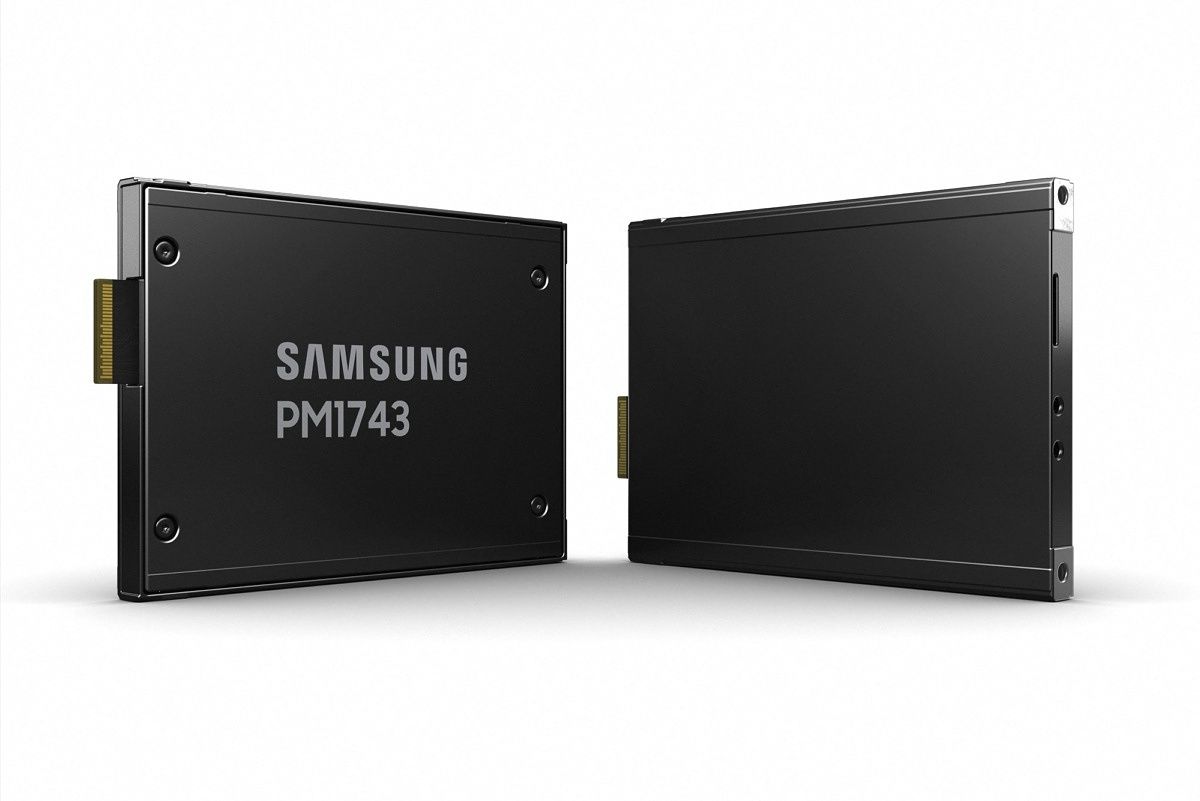Samsung has announced its first PCIe Gen 5 SSD for enterprise customers, the PM1743, which is also one of the first PCIe 5.0 SSDs in general. With the launch of Intel's Alder Lake desktop processors, PCIe Gen 5 is now available to the general public, and adoption is only going to increase as more processors add support for it. But Samsung is one of the first to jump aboard the train.
The Samsung PM1743 is a PCIe 5 SSD meant for enterprise servers, so don't expect it to make its way to your computer anytime soon, but it does open the path for that. Samsung touts nearly twice the speed of PCIe 4.0 SSDs. The Samsung 980 PRO SSD, for example, has read speeds up to 7,000 megabytes per second (MB/s), but the PM1743 promises up to 13,000 MB/s read speeds. Write speeds have also been increased to up to 6,600 MB/s. For reference, the Samsung 980 PRO supported up to 5,100 MB/s speeds.
The new PCIe 5 SSD also promises to do this with 30% more power efficiency, offering a transfer rate 608 MB/s per watt. This is especially important for servers that handle massive amounts of data, saving customers money in the long run.
The Samsung PM1743 will come in capacities from roughly 2TB to 16TB and it'll be offered in a couple of different form factors. It'll also be the first PCIe 5.0 SSD for enterprise with dual-port support, so servers can continue operating if one of the ports fails. Mass production for this SSD is set to begin in the first quarter of 2022.
If you're not an enterprise customer, don't worry, you'll also get your PCIe 5.0 SSDs in due time. XPG announced recently that it will be showcasing two prototypes of PCIe 5.0 SSDs at CES 2022, and they actually boast even faster speeds. Project Nighthawk promises read speeds up to 14 GB/s and write speeds up to 12 GB/s, while Project Blackbird has slower writes, but it still goes up to 10 GB/s. Both SSDs have capacities up to 8TB.
With that being said, we don't know when these products will make their way to the market. But with CES 2022 rapidly approaching, albeit in a very limited form, we're likely to see many more PCIe 5 SSDs from different companies.

